How to Set Rent Rates for Jupiter Properties Based on Market Trends
Understanding the Importance of Market-Based Rent Pricing
Setting the right rent rate for your Jupiter, Florida property is essential for attracting tenants, maximizing profitability, and staying competitive in the local real estate market. Overpricing can lead to prolonged vacancies, while underpricing can reduce your return on investment (ROI). By leveraging market trends and strategic pricing techniques, landlords and property managers can determine an optimal rent that balances affordability for tenants with profitability for property owners.
Researching the Local Rental Market
Analyzing Comparable Properties (Comps)
One of the most effective ways to determine rent prices is by evaluating comparable properties, often referred to as “comps.” These are properties similar to yours in terms of size, location, condition, and amenities. Here’s how you can conduct a comparative analysis:
Identify Comparable Listings: Use online real estate platforms like Zillow, Realtor.com, or local property management websites to find rental listings in Jupiter that closely match your property’s features.
Assess Rental Rates: Look at the asking rents for similar properties and take note of any patterns in pricing. For instance, a two-bedroom condo in Abacoa may rent for a different price than a three-bedroom house in The Shores of Jupiter.
Evaluate Market Demand: Check how long properties have been listed. If a particular type of property stays on the market longer, it may indicate that the rent is set too high or that demand for that type of property is lower.
Utilizing Local Market Reports and Data
In addition to individual listing comparisons, consulting market reports can provide broader insights into rental trends in Jupiter. Reports from sources such as:
Multiple Listing Service (MLS) for recent rental data.
Florida Realtors for rental trend reports.
Property management firms that offer market research services.
These sources provide data on factors like median rent prices, occupancy rates, and seasonal rental fluctuations, which can help landlords make data-driven pricing decisions.
Evaluating Economic and Demographic Trends
Economic Growth and Employment Rates
Economic factors significantly impact rental pricing. Jupiter, as part of Palm Beach County, has a strong job market, with major employers in healthcare, tourism, and technology. If job growth is rising, demand for rental properties will likely increase, allowing landlords to justify higher rent rates.
Population Growth and Migration Patterns
Jupiter has experienced an influx of residents due to its high quality of life, coastal location, and strong school districts. Understanding population trends can help landlords anticipate rental demand. If an area is attracting more professionals and families, higher rents may be sustainable, especially for properties near top-rated schools and amenities.
Seasonality and Rental Demand
South Florida, including Jupiter, has a seasonal rental market influenced by tourism and snowbirds (winter residents from colder states). Seasonal fluctuations should be factored into pricing strategies:
Peak Season (Winter): Higher demand from seasonal renters may allow landlords to charge premium rates.
Off-Peak Season (Summer): Rental demand may decrease, requiring more competitive pricing strategies.
Understanding Property-Specific Factors Affecting Rent
Location and Neighborhood Appeal
The desirability of a property’s location directly affects rental pricing. Factors that enhance a property’s appeal include:
Proximity to Beaches and Parks: Properties near Jupiter Beach or Carlin Park tend to command higher rents.
Access to Schools: Properties in A-rated school districts are in high demand among families.
Commute and Transportation Access: Homes near major highways or public transit hubs tend to attract working professionals.
Property Features and Amenities
The physical characteristics of a rental property also influence its rental value. Some key elements to consider include:
Size and Layout: Larger homes with additional bedrooms and bathrooms often command higher rents.
Modern Upgrades: Renovated kitchens, energy-efficient appliances, and smart home technology can justify premium rental pricing.
Community Amenities: Gated communities, pools, fitness centers, and security features can increase rental value, particularly in high-end neighborhoods like Admirals Cove.
Calculating Rent Based on Property Value
A common formula used by landlords to determine rent prices is the Rental Yield Method:
Gross Rent Multiplier (GRM): Divide the property’s market value by the annual rental income to get a general pricing guideline.
1% Rule: This rule suggests setting rent at approximately 1% of the property’s value. For example, if your property is worth $500,000, the recommended rent would be around $5,000 per month. However, this rule should be adjusted based on market conditions and demand.
Operating Expense Ratio: Factor in maintenance, property taxes, and other expenses to ensure profitability.
By using these calculations in combination with market data, landlords can set a competitive and sustainable rent rate.

Get a Free Rental Analysis
Want to know how much your home will rent for? We’ll send you a free rental report!
Strategies for Adjusting Rent Rates and Staying Competitive
Periodic Rent Reviews and Adjustments
To ensure your rental property remains competitive in Jupiter’s evolving market, landlords should periodically review rent rates and make adjustments based on changing economic conditions, tenant demand, and property expenses.
Annual Rent Assessments
A good practice is conducting an annual rent assessment to evaluate whether an increase, decrease, or stabilization is necessary. Key factors to review include:
Market Inflation Rates: If inflation has significantly impacted property maintenance costs, a moderate rent increase may be necessary to maintain profitability.
Tenant Retention Strategies: If you have long-term tenants, raising rent gradually and reasonably can prevent turnover while maintaining a steady income stream.
Competitive Benchmarking: Compare your property’s rent with similar rentals in the Jupiter area to ensure your pricing remains attractive.
Responding to Market Shifts
If there is a downturn in the rental market, landlords may need to offer incentives instead of reducing rent outright. Popular strategies include:
Offering Free Utilities: Covering water, trash, or internet for a set period can attract tenants without permanently lowering rent.
Flexible Lease Terms: Allowing tenants to sign short-term leases with renewal options can make your property more appealing during uncertain market conditions.
Seasonal Discounts: Adjust pricing for slower rental periods while compensating with higher rents during peak seasons.
Effective Marketing Strategies for Rental Properties
Even if your rent is competitively set, effective marketing is crucial to attract quality tenants.
High-Quality Listing Photos and Descriptions
A well-crafted rental listing can make a significant difference in tenant inquiries. Ensure your listing includes:
Professional Photos: High-resolution images of key spaces such as the kitchen, living areas, and outdoor amenities can make your listing stand out.
Detailed Property Descriptions: Highlight unique selling points such as “newly renovated kitchen,” “walking distance to Jupiter Beach,” or “gated community with 24/7 security.”
Clear Pricing Information: Transparency in pricing, including any additional fees, can help set the right expectations for potential tenants.
Utilizing Multiple Advertising Channels
Expand your reach by listing on multiple platforms, such as:
Online Real Estate Marketplaces: Zillow, Realtor.com, Apartments.com
Social Media Marketing: Facebook Marketplace, Instagram, LinkedIn
Local Classifieds and Community Boards: Targeting Jupiter-specific groups can attract tenants looking for local properties
Legal Considerations When Adjusting Rent Rates
Compliance with Florida Landlord-Tenant Laws
When adjusting rent, landlords must follow legal regulations to avoid disputes. In Florida, key considerations include:
Notice Requirements: Landlords must provide at least a 15-day notice before increasing rent for month-to-month tenants, and longer for annual leases as stipulated in lease agreements.
Rent Control Regulations: Florida currently does not impose statewide rent control, but local municipalities may have specific guidelines to follow.
Fair Housing Laws: Ensure rent adjustments do not discriminate against tenants based on race, gender, disability, or other protected characteristics.
Handling Tenant Negotiations and Objections
Justifying Rent Increases
When informing tenants of a rent adjustment, providing a clear explanation backed by data can help prevent disputes. Key points to emphasize include:
Property Upgrades: If recent renovations or amenity additions have improved the property, explain how they justify the rent increase.
Market Comparisons: Sharing data on similar properties in the area can help tenants understand that the new rent remains fair.
Cost Increases: Detailing rising property taxes, insurance, or maintenance costs can help justify rent adjustments.
Offering Renewal Incentives
To retain quality tenants while increasing rent, consider:
Gradual Rent Increases: Instead of a large hike, offer a stepped increase over a few months.
Loyalty Discounts: Provide small discounts or perks to tenants who renew long-term leases.
Improvement Promises: Offer to upgrade appliances or repaint units in exchange for a lease renewal.

Advanced Pricing Strategies and Long-Term Rental Profitability
Implementing Dynamic Pricing Models
Dynamic pricing is an advanced strategy that allows landlords to adjust rental rates based on real-time market data. This approach is particularly useful in fluctuating markets like Jupiter.
Benefits of Dynamic Pricing
Maximizes Rental Income: By setting rent rates based on current demand, landlords can capture higher profits during peak seasons.
Enhances Occupancy Rates: Adjusting rent downward during off-peak seasons ensures continuous occupancy.
Data-Driven Decision Making: Using market analytics helps eliminate guesswork and optimize pricing structures.
Tools and Techniques for Dynamic Pricing
Rental Market Analytics Software: Tools like Rentometer and Zillow Rental Manager provide real-time insights into local rent trends.
Demand-Based Adjustments: Analyzing seasonal and economic factors to tweak rent based on tenant demand.
Competitor Benchmarking: Regularly reviewing comparable properties ensures you remain competitive while maximizing returns.
Long-Term Rental Investment Considerations
Evaluating Property Appreciation and ROI
Rental property owners must assess not only monthly cash flow but also long-term property appreciation.
Key factors influencing property value in Jupiter include:
Neighborhood Growth: Proximity to new developments, schools, and commercial hubs enhances appreciation.
Infrastructure Improvements: Roads, public transport, and commercial developments can boost property values over time.
Market Demand Trends: Identifying emerging rental hotspots helps investors position their properties advantageously.
Balancing Cash Flow and Capital Growth
To ensure a sustainable investment strategy, landlords must balance:
Short-Term Rental Yields: Ensuring rental income covers mortgage payments, taxes, and maintenance costs.
Long-Term Property Value Growth: Monitoring market trends to determine when selling or refinancing would be most profitable.
Reinvestment Strategies: Allocating profits to property upgrades or acquiring additional rental units.
Risk Management and Contingency Planning
Mitigating Vacancy Risks
Even in a high-demand market, rental vacancies can occur. Effective strategies to reduce vacancy risks include:
Maintaining Competitive Pricing: Avoid setting rates too high, leading to prolonged vacancies.
Tenant Retention Programs: Incentivizing long-term tenants with loyalty rewards and maintenance responsiveness.
Proactive Marketing: Keeping a pipeline of potential renters through continuous advertising efforts.
Preparing for Market Downturns
Economic fluctuations can impact rental demand. To safeguard investments:
Maintain an Emergency Fund: Having at least three to six months of rental income in savings can help cover unexpected costs.
Diversify Investment Portfolio: Owning multiple properties in different neighborhoods reduces exposure to localized downturns.
Flexible Lease Terms: Offering both short-term and long-term leasing options provides adaptability in changing markets.
Final Thoughts
Setting rent rates based on market trends requires a combination of data-driven strategies, effective marketing, legal compliance, and long-term investment planning. By leveraging dynamic pricing, understanding local real estate trends, and preparing for market fluctuations, Jupiter property owners can optimize rental income while ensuring sustainable growth. Implementing these best practices allows landlords to maintain competitive rent rates, attract quality tenants, and maximize the profitability of their rental properties.
Suggested Relevant Links:
How Property Managers Use Data to Set the Perfect Rental Price
The Benefits of Using a Local Property Management Company in Jupiter, FL
The Benefits of Working with a Local Property Manager in Palm Beach County
How Market Trends Shape the Perfect Lease Agreement
How to Keep Your Jupiter Long-Term Rentals Occupied Year-Round
Frequently Asked Questions (FAQs) on Setting Rent Rates for Jupiter Properties
1. How do I determine the right rent rate for my Jupiter property?
Research similar properties in the area, considering factors like location, size, condition, and amenities. Use platforms like Zillow and Rentometer to analyze comparable listings and current market conditions.
2. What factors affect rent rates in Jupiter?
Location, property condition, amenities, and current market trends all influence rent prices. Properties close to amenities like beaches, schools, or shopping areas typically command higher rent.
3. How do market trends in Jupiter impact rent rates?
Rent rates fluctuate based on local demand and supply. Higher demand, such as during peak tourist seasons, can increase prices, while lower demand may cause rents to decrease.
4. What is the best time to adjust rent rates in Jupiter?
Adjust rates during peak demand periods, like the winter season when snowbirds arrive, or when you notice changes in the local rental market.
5. How can I make my Jupiter property stand out in a competitive market?
Offer attractive amenities or upgrades, like modern appliances or energy-efficient features, and be flexible with lease terms to attract more tenants.
6. How can local property management companies help set rent rates?
Property management companies are experts in local market conditions. They can advise you on competitive pricing and help optimize your rental income.
7. Should I include utilities in the rent?
It depends on your target tenants. Including utilities can make your property more appealing, but it could also increase the rent. Charging separately gives tenants more control over their usage.
8. How can I track changes in the Jupiter rental market?
Subscribe to local real estate publications, track online listings, and consult local property managers to stay informed about market trends.
9. What if my property isn’t renting at the desired rate?
Revisit your pricing, improve the property’s condition, or enhance your marketing efforts. Consider adjusting the rent to align with current market rates.
10. Can I increase rent during a lease term?
Generally, you can’t increase rent mid-lease unless allowed in the agreement. Rent increases can only happen at lease renewal, with proper notice.
11. How does the local economy affect rent rates?
A strong local economy boosts demand for rentals, increasing rent rates. A weaker economy may cause rent prices to stabilize or decrease.
12. Are there rent control laws in Jupiter?
Florida does not have rent control laws. Rent is determined by market conditions and lease agreements, though certain regulations for rent increases must be followed.
13. How often should I adjust rent rates for my Jupiter property?
Review and adjust rent annually, or more frequently if market conditions change drastically. This helps keep your property competitive.
14. What are common mistakes when setting rent rates?
Setting rent too high can result in vacancies, while setting it too low can lead to lost revenue. Always research the local market before adjusting rent rates.
15. Should I offer incentives or discounts to attract tenants?
Offering incentives like rent discounts or waiving fees can help fill vacancies quickly, but ensure they don’t undermine your rent pricing strategy.



